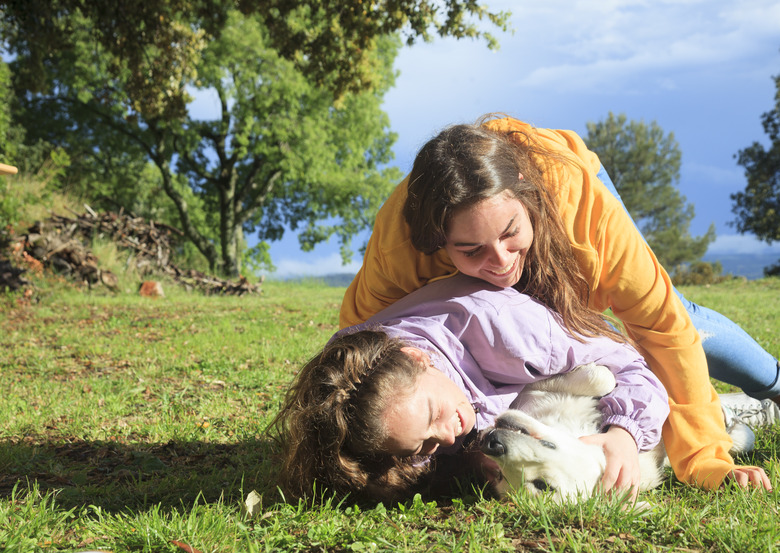Are You A Proud Dog Parent? It's All In Your Genes!
Love your adorable little pupper? It's all in your DNA.
At least, that's what a team of Swedish and British scientists concluded in their study of the heritability of dog ownership, published via Uppsala University on May 19. The research indicates that genetic variation explains most of the variation in dog ownership, which implies that an individual's genetic makeup may heavily influence their decision to get a dog.
What This Could Mean
What This Could Mean
Previous studies have indicated that dog owners enjoy some common health benefits, according to Science Daily. That's why it's important to understand that dog owners share genetic similarities – it helps clarify that genes act as a common denominator between dog ownership and health benefits.
"They suggest that supposed health benefits of owning a dog reported in some studies may be partly explained by different genetics of the people studied," study co-author Carri Westgarth explained in her research.
Keith Dobney, another co-author of the study, added that these findings may help us understand why humans have connected with dogs for so long – about 15,000 years, in fact.
"The study has major implications for understanding the deep and enigmatic history of dog domestication," he said. "Decades of archaeological research have helped us construct a better picture of where and when dogs entered into the human world, but modern and ancient genetic data are now allowing us to directly explore why and how."
How They Did It
How They Did It
Researchers conducted this study using information from 35,035 pairs of twins from the Swedish Twin Registry. Scientists often use twins for these types of studies to help distinguish between the influences of environment and genetics, according to Interesting Engineering. That's because identical twins share their entire genome – meaning they have the same exact genetic makeup – whereas nonidentical twins share only half.
In this study, scientists found concordance dog ownership rates to be much larger in identical twins than in non-identical twins. This suggests that genes help influence dog ownership.
"We were surprised to see that a person's genetic makeup appears to be a significant influence in whether they own a dog," study lead author Tove Fall stated in the team's research, originally published in the journal Scientific Reports.
Dogs represent the first domesticated animal, and they have shared a long, ever-evolving relationship with humans over thousands of years. Fall's and his team's research may help deepen researchers' understanding of that relationship.
"In view of the deep history of animal domestication (the first and oldest being the dog) and our long and changing relationship with them, this evidence may be an important first step in unraveling some of the most fundamental and largely unanswered questions regarding animal domestication," the study states.
References
- Interesting Engineering: Your Choice to Own a Dog Was Influenced by Your Genetic Makeup, Says Scientists
- Scientific Reports: Evidence of Large Genetic Influence on Dog Ownership in the Swedish Twin Registry Has Implications for Understanding Domestication and Health Associations
- Science Daily: Owning a Dog is Influenced by Our Genetic Makeup
- Uppsala University: Owning a Dog is Influenced by Our Genetic Makeup
Cite This Article
MLA
Swanston, Brenna. "Are You A Proud Dog Parent? It's All In Your Genes!" sciencing.com, https://www.sciencing.com/are-you-a-proud-dog-parent-its-all-in-your-genes-13719243/. 21 May 2019.
APA
Swanston, Brenna. (2019, May 21). Are You A Proud Dog Parent? It's All In Your Genes!. sciencing.com. Retrieved from https://www.sciencing.com/are-you-a-proud-dog-parent-its-all-in-your-genes-13719243/
Chicago
Swanston, Brenna. Are You A Proud Dog Parent? It's All In Your Genes! last modified August 30, 2022. https://www.sciencing.com/are-you-a-proud-dog-parent-its-all-in-your-genes-13719243/
